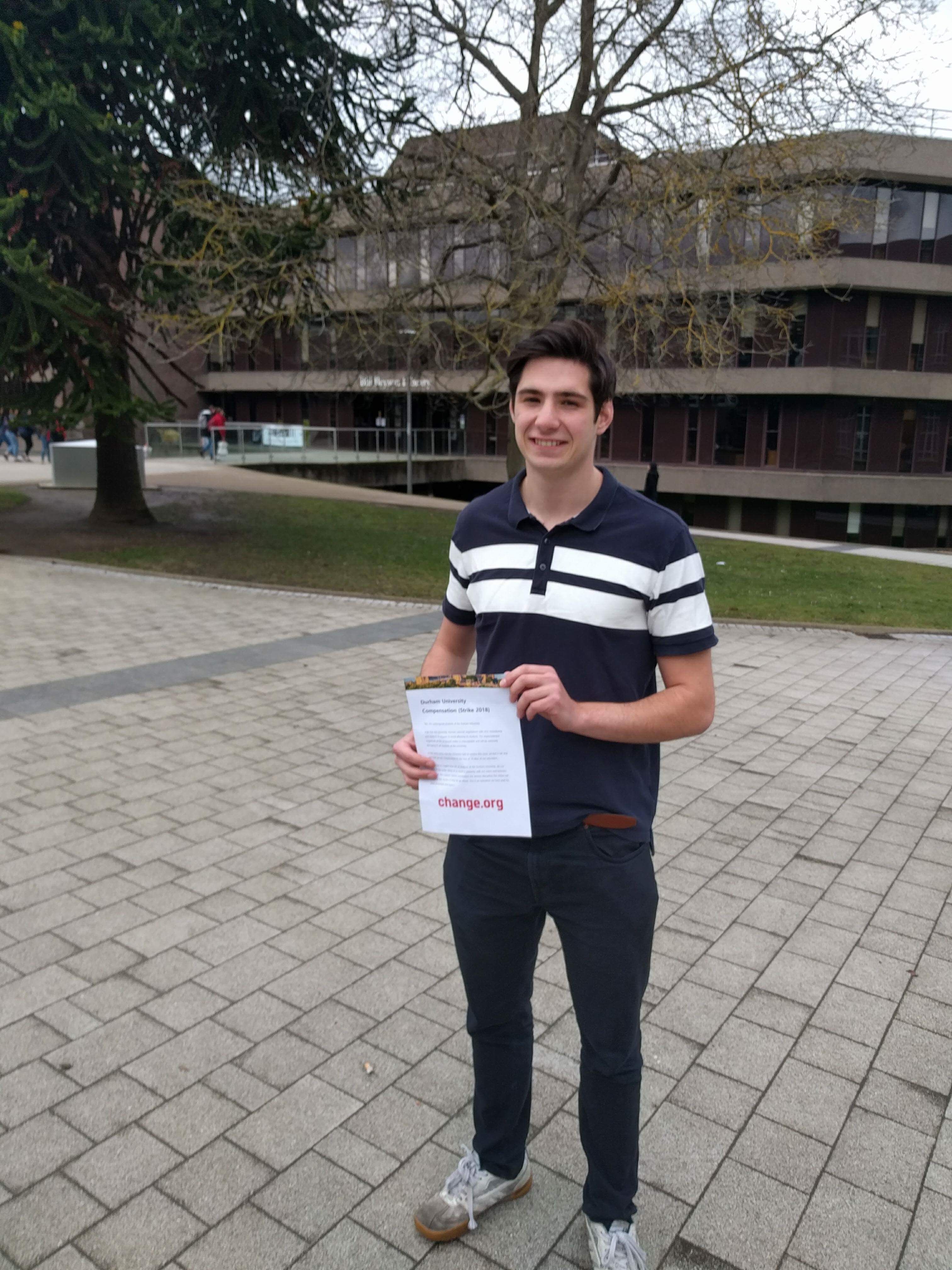Students at Durham University have set up a petition demanding compensation for lectures missed as a result of strikes organised by the University and College Union (UCU).
Final year Education and History student Tom Hawkins has followed in the footsteps of others at universities such as Edinburgh and Sheffield.
Why should students be compensated?

Tom has started a petition for compensation
Tom told The Tab: "I was just starting to find my feet within the world of academia and it is disappointing to have this taken from me because of what essentially is mismanagement.
"I am sure many others feel the same way I do. I hope the petition can help resolve the situation for students and lecturers alike."
According to Tom, not only could these strikes "disrupt the joys of learning and impact performance in all important end of year assessments", but may also lead to our education being used as a "bargaining chip".
However the student body may feel, Tom sees his petition as an opportunity for us to have a voice in a situation where the outcome will directly impact us, as well as influencing how disputes such as this will be resolved in the future.
He claims the main priority of this petition is to "urge the University to resume national negotiations". For Tom this about the quality of our education rather than merely demanding money.
Should students stand in solidarity with lecturers?

DSU Presidential candidate George Walker
DSU Presidential candidate George Walker, meanwhile, has expressed support for the striking lecturers, calling the staff pensions cuts "unjust and very damaging", claiming lecturers face the possibility of having their pensions slashed by up to £10,000 a year.
George believes that student anger should be directed towards a management who have failed to provide their staff with what they were promised, emphasising that the quality of teaching will be compromised if "their employment is insecure and their pay and conditions are under threat".
"Many talented people [will choose] not to enter academia, leaving our Universities short-staffed and harming the quality of teaching", he told The Tab.
Details of strike action

Lecturers at Durham University will strike for fourteen days over a four-week period, after an agreement could not be reached with employers’ representative Universities UK over changes to lecturers' pension schemes.
The University and College Union (UCU) claims this would leave a typical lecturer almost £10,000 a year worse off in retirement than under the current set-up.
Week 1: Thursday 22, Friday 23 February
Week 2: Monday 26, Tuesday 27, Wednesday 28 February
Week 3: Monday 5, Tuesday 6, Wednesday 7, Thursday 8 March
Week 4: Monday 12, Tuesday 13, Wednesday 14, Thursday 15, Friday 16 March
It is possible that strikes will continue for five months, after an announcement made by UCU General Secretary Sally Hunt on Monday, 19 February.
Comments
Post a Comment